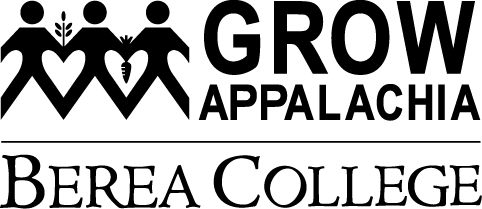“The color of springtime is in the flowers, the color of winter is in the imagination” ~Ward Elliot Hour
As I gaze out my office window at a brown mountainside and frost covered grass, I am reminded of the above quote. The wildflowers that line the ditches at PMSS no longer show their colors, and vivid vegetables growing in the gardens are now relegated solely to the inside of the hoop house. While winter office work has already begun to make me crazy, and the land isn’t quite as pretty as usual, this time of year calls for celebration. I am reminded that the winter solstice is just two days away, which has signaled celebrations of rebirth all throughout history. Just in time for holiday celebrations, seed catalogs arrive in the mail signaling the renewal of the garden, and flooding my imagination with color.
I love seed catalogs, and I bet I’d be hard pressed to find a gardener who doesn’t. I’d like to share a list of my favorite seed companies, as you sort through all of the seed studded mail you are sure to be receiving. This by no means indicates that these companies are endorsed by Grow Appalachia; this is simply a list of companies that I personally have had good experience with, and I believe to be ethical companies selling quality seeds.
Sustainable Mountain Agriculture Center (SMAC): Located in Berea, KY, Bill Best of SMAC is an expert seed saver who has collected hundreds of varieties of heirloom beans and tomatoes originating in the Appalachian Mountains. Bill works to promote seed saving, and SMAC serves as a model farm for our region. SMAC sells a variety of seeds each year to help families get started saving their own seed. The website also provides good information on heirlooms.
Fedco: Fedco is a cooperative seed company based in Maine. Consumers own 60% of the cooperative and worker members own 40%. Fedco offers a huge selection and the cheapest prices of untreated, open pollinated and organic seed that I have seen. They also have one of the most interesting seed catalogs to read (despite the absence of glossy photos). If you get a chance to see a Fedco catalog, do not get overwhelmed by the fact that it is a little hard to use. Taking time to look through this catalog can really save money. Fedco has made an effort to stay away from Genetically Modified Seeds, and strives to not obtain any seed from Monsanto or any of its subsidiaries. After each listed seed variety Fedco uses a code to let you know where that particular seed was sourced from, in case you are concerned about which types of seed growers you wish to support.
Southern Exposure Seed Exchange (SESE): SESE is a worker run seed cooperative in central Virginia. SESE has a non-GMO policy and has been involved in lawsuits to protect seeds. SESE specializes in untreated, organic, open pollinated, heirloom seed from the southern United States. And guess what? Some of their seed comes from SMAC! The SESE catalog is another gem to look through, and their website provides a lot of helpful growing information, including a wonderful handout explaining how to save seeds.
High Mowing: High Mowing sells 100% organic, untreated seeds. High Mowing grows the majority of its seed on its own farm, and has worked within its Vermont Community to bring local food businesses together. Their website has a lot of good information, including a great blog. If you haven’t read Ben Hewitt’s book The Town That Food Saved, I highly recommend it as a great read that features the story of High Mowing.
Johnny’s Selected Seeds: Johnny’s is a 100% employee owned Seed Company in Maine. Johnny’s is focused on selling to small farmers more than backyard gardeners, but their seeds are still good for us. While selling more hybrids than the other companies on this list, they also feature open pollinated, untreated, and organic seed choices. Johnny’s has also adopted a safe seed pledge, vowing not to carry genetically modified seeds.
Baker’s Creek: Baker’s Creek publishes the most beautiful catalog I’ve ever laid eyes on. Featuring artistic photos, recipes, and quotes, it is easy to be sucked into this glossy catalog. Baker’s Creek carries a huge selection of rare seeds from the 19th century. All of the seed from Baker’s Creek is open pollinated, untreated, and non-GMO. They do not carry seed from Monsanto owned companies or any other companies practicing genetic modification. If you are looking for unique and pretty this is the catalog for you, but these seeds are far from the cheapest.
Seeds of Change: Seeds of Change offers 100% organic seeds grown my small farmers and professional growers. I actually know a family that produce seed for this company. While this company produces high quality seed, they tend to be pretty expensive.
Harris Seed: Harris Seed offers untreated, organic seed as well.
For me, it is important to obtain seed from companies that I trust. Our seed supply is disappearing into the hands of a few large companies, and as someone who wants control over my own food; I definitely want control over seeds as well. Almost all of the above companies generously donated seeds to our Grow Appalachia program last year, and I hope they will help us out for 2013. In case you are interested in learning more about seed types and what the words open pollinated, hybrid, heirloom, untreated, and GMO mean, please take a look at these blog posts from last winter. Seed Time Part 1, Seed Time Part 2, and Seed Time Part 3.
If you are interested in reading a great book about our seed supply and seed saving, please read Janisse Ray’s The Seed Underground. I was fortunate enough to here Janisse Ray speak twice this fall, and I thoroughly enjoyed her book.
If you are still craving information on seed saving, we at PMSS are fortunate to announce that Bill Best, along with expert seed saver Frank Barnett, will be presenting at our third annual seed swap on March 16, 2013. Everyone is welcome to come and visit PMSS, trade seeds and stories, and learn from these impressive men. Hope you see you there!







I would like a list of seed from Bill best that I could buy my parentsare from knott co.
Ardith, Visit http://www.heirlooms.org/ for a list of seeds and ordering info.